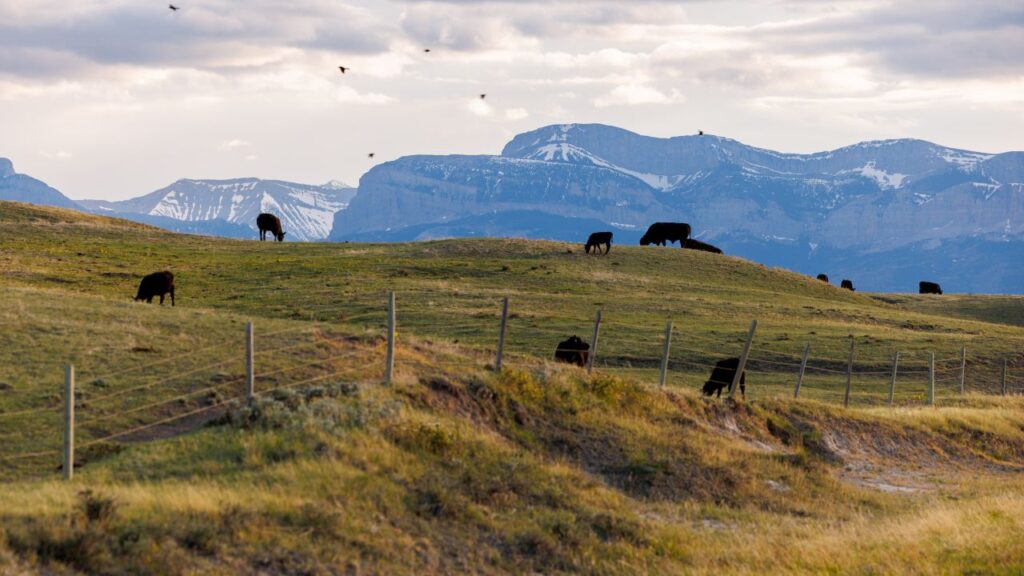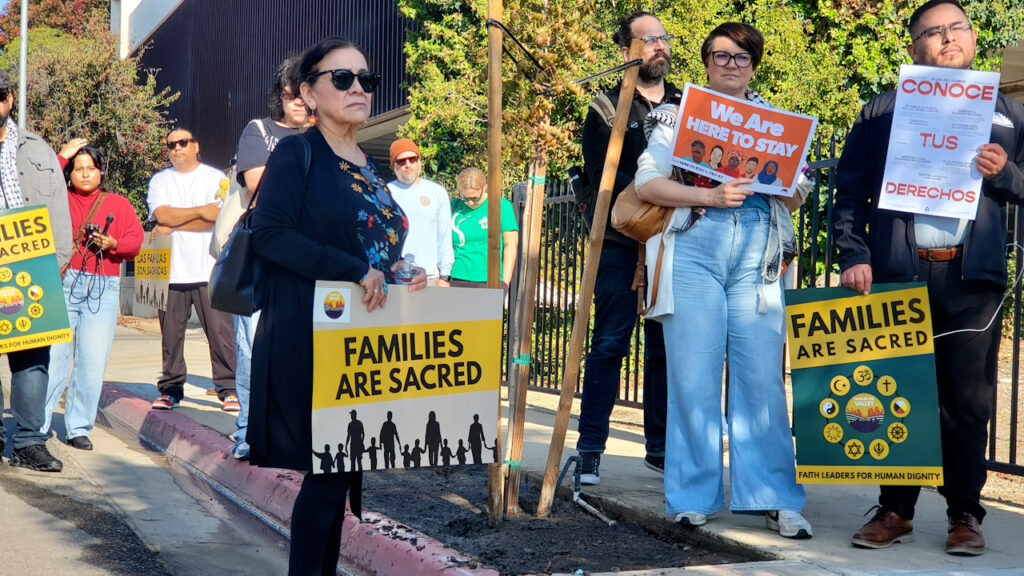Southern Tulare County faces a significant challenge in repurposing farmland due to groundwater restrictions, impacting local jobs and communities. (SJV Water File/Lois Henry)

- Over 900,000 acres of San Joaquin Valley farmland may be retired to comply with SGMA by 2040.
- Workshops engage residents and stakeholders to find viable economic alternatives for retired ag land.
- Farmers, planners, and advocates unite, seeking solutions to protect agriculture and local communities.
Share
Pressure is mounting to find new uses for an estimated 70,000 acres – or 20% – of farmland in southern Tulare County that will likely be taken out of production to reduce groundwater use by 2040.

Lisa McEwen
SJV Water
With nearly 15% of Tulare County’s workforce employed in ag and ag-related industries, according to Data USA, that kind of farmland reduction could be devastating to residents.
“When I hear about farms closing, it makes me sad,” Earlimart resident Maria Contreras said through an interpreter at a meeting to discuss other uses for farmland.
“Those are jobs we are losing. I would love to hear more from farmers at future meetings about how we can all help each other.”
The April 29 meeting attracted more than 50 people from a wide variety of interests, all intent on figuring out how to find economically viable uses for land that will have to come out of production as the Sustainable Groundwater Management Act restricts groundwater pumping.
Another workshop on the issue will be held June 10. Both are organized through the Tule subbasin’s Multibenefit Land Repurposing Program, which is state funded. Tule subbasin water managers landed a $10 million MLRP grant and are reaching out to residents through these workshops to help prioritize projects.
The Scale of SGMA’s Impact on Farmland

The scale of how much farmland will be affected by SGMA pumping cuts is daunting.
It’s estimated that more than 900,000 acres of productive land throughout the San Joaquin Valley will need to be retired to comply with SGMA, which mandates aquifers be brought into balance by 2040.
The majority of that fallowing – 600,000 acres – will be in Tulare, Kings and Kern counties.
MLRP’s task is to find ways to do that without crushing local economies.
“Rather than doing random acts here and there, it’s better to develop a process that works well and then repeat it,” said John Meriweather, wildlife biologist at Kern and Pixley National Wildlife Refuges during the April 29 meeting. “If we could identify a location with the least amount of hurt, we could use it as a demonstration model for other communities and go from there.”
Seeking Solutions and Community Collaboration
One local grower urged water managers to keep the most productive ground in use while creatively and permanently idling less fertile ground.
“We can’t just graze the ground, it won’t support the economy,” said Frank Fernandes, a Tipton dairy farmer and member of the Tule Land & Water Conservation Trust. “We’ve got to keep ag in the area. Otherwise it’s going to hurt these socio-economically disadvantaged communities more than the landowners.”
City planners, drinking water advocates and tribal representatives at the meeting each pitched different ideas during the two hour workshop that by the end had participants viewing each other as allies rather than enemies.
“Listening to these farmers say they’ve lived here their whole life and they want to know what’s going to happen to the disadvantaged communities if farms die, I have a whole new outlook,” said Sherry Hunter, president of the Allensworth Community Services District. “My takeaway from all of this is that you guys care. We are all in this together.”
Her comment elicited a round of applause.
Joan Parker, member of the Tulare-Kings chapter of the Audubon Society, cautioned against fragmented land use, encouraging connectivity between retired lands that will bolster wildlife habitat, which could be turned into ecotourism opportunities.
“People will pay exorbitant amounts of money to come and see a bird they can’t see on the East Coast,” she said.
Allensworth resident Denise Kadara said ecotourism collaboration is already underway between her community, which is home to Allensworth State Historic Park, and conservation groups such as the Tule Basin Land & Water Conservation Trust.
“It creates an attractive destination for southwest Tulare County,” she said. “We are trying to do exactly what we’re talking about here.”
Funding and Future Steps for Land Repurposing

Abby Hart, project director at The Nature Conservancy, said the key is to develop land repurposing projects that in turn attract more funding from other sources than the state Department of Conservation.
“We can brainstorm with all of you how to get that done and tap a lot of funding resources other than just what the state has given us with this MLRP grant,” Hart said.
Funding is what occupies Pixley and Lower Tule River GSAs manager Eric Limas’ mind most days.
“I spend a lot of time trying to come up with solutions that work, especially for the farmers,” he said. “It’s very clear we all agree on the solutions and the things that can work and might not work. But the frustrating part that it really gets down to is that it takes money. Where will it come from, how will we implement it and how will we pay for it?”
For more information on the June 10 workshop, interested person’s may contact Nicolia Mehrling at nicolia@aginnovations.org or Laima Diaz Vepstas at laima@aginnovations.org for Spanish assistance.
About the Author
Lisa grew up in Tulare County. She has reported on agriculture and other issues for a wide variety of publications, including, Ag Alert, Visalia Times-Delta, the Fresno Bee and the Tulare and Kings counties farm bureau publications.
About SJV Water
SJV Water is an independent, nonprofit news site covering water in the San Joaquin Valley, www.sjvwater.org. Email us at sjvwater@sjvwater.org.




















